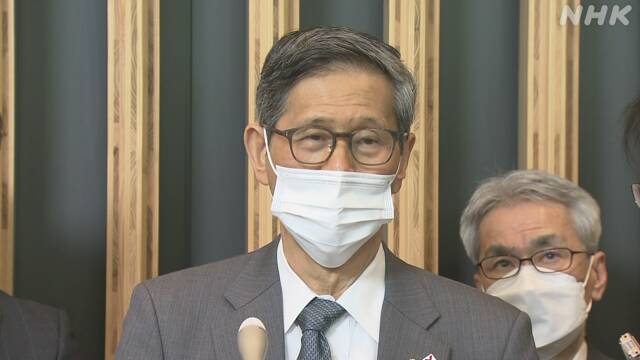Chairman Shigeru Omi, chairman of the government subcommittee, and Takaji Wakita, chairman of the expert meeting of the Ministry of Health, Labor and Welfare, attended the meeting of experts to verify the new corona measures on the 20th. The government did not fully explain the adoption / rejection of the proposal, the reason for the decision, and the status of implementation, and explained by showing a document that there was a problem in the relationship between experts and the government.
In addition, he said that the recommendations made based on the lessons learned from the new influenza that expanded in 2009 were not implemented, and that the testing system was not strengthened and the medical care provision system was not considered. We should build a scientific advice system that can respond to the above. "
Chairman Omi and his colleagues documented and explained the challenges and future directions of the new coronavirus countermeasures for the past two and a half years at a meeting of experts on the 20th.
According to the report, while the number of newly infected people and the number of people dying per capita is kept low in Japan compared to other countries, various issues have become apparent.
He cited the relationship between the government and experts as one of the issues, and while the ▽ subcommittee and other expert advisory organizations presented a total of 68 recommendations, the government decided whether or not to incorporate them into the policy. , The reason, the explanation of the implementation status was not enough, it was difficult to understand the process of decision-making of measures, and ▽ The mechanism to support the investigation and research necessary when giving advice to the government is weak, so to experts It is said that it was overburdened.
In addition, the recommendations for strengthening the testing system and examining the medical care provision system, which were given based on the lessons learned from the new influenza that expanded in 2009, were not implemented, and the testing could not be increased rapidly at the beginning, so it was limited. In addition to the need to carry out efficiently within the established system, it was pointed out that the purpose of inspection and the policy of utilization were not discussed, and a major strategy for the system was not decided.
Furthermore, regarding medical care,
▽ because we have focused on long-term care and life support to optimize for the world's most super-aged society, a system for responding to pandemics has not been sufficiently established.
▽ Doctors and nursing per bed It is difficult to deal with severely ill patients with a small number of teachers and a rapid increase in a short period of
time
.
The issue is that the number of cases where it is difficult to transport patients is increasing.
The document also indicates the direction that will be required in the future, stating that "a scientific advice system that can deal with large-scale risks such as pandemics should be built", and ▼ data possessed by the national and local governments can be quickly shared with experts. It is said that it is necessary to strengthen the system and the secretariat function that can support advanced research.
Regarding examinations and medical systems, ▼ prepare for a pandemic, strengthen and maintain the examination system, ▼ enable certain medical institutions to convert to dedicated hospitals when infection is expected to spread, and general It is necessary to solve problems such as strengthening the system for medical institutions to participate in medical treatment.
He also pointed out that it is the role of the government to communicate with citizens in an emergency, and that it is essential to strengthen the communication system using experts and to monitor the implementation status of measures in an easy-to-understand manner.
Chairman Omi "The number of subcommittee members and their expertise are limited."
Chairman Omi, who responded to the interview after the meeting, said, "In the hearing, we have taken a policy of controlling the number of seriously ill and dying people while controlling the infection, instead of the containment aiming for" zero corona "in the big direction of corona response. I looked back. As the Omicron strain spreads, I gradually changed the rules such as reporting and investigation of infected people, and gradually changed to the policy of "damage control" to reduce the number of people who die without focusing on infection control itself. I think it is necessary to take more efficient measures and show measures that do not have to be taken. "
In addition, regarding "cluster measures" that were carried out from the early stages of the epidemic to find clusters of infected people at an early stage and prevent the spread of infection, "the knowledge that many of the infected people do not infect other people is found at an early stage. This finding was confirmed in the latest survey, but if the number of infected people increases considerably, the spread of infection cannot be stopped by cluster measures alone, and priority measures such as spread prevention and emergencies I think it means that a declaration is needed. "
Furthermore, regarding the ideal organization of experts for the next pandemic, Chairman Omi said, "In crisis response, even if the scientific basis is not completely clear as an expert, there are situations where we have to give advice and suggestions. Members of the subcommittee. Then, since the number of people and expertise is inevitably limited, I also mentioned that depending on the situation, a mechanism to collaborate with another group of experts such as academic societies may be required. "

